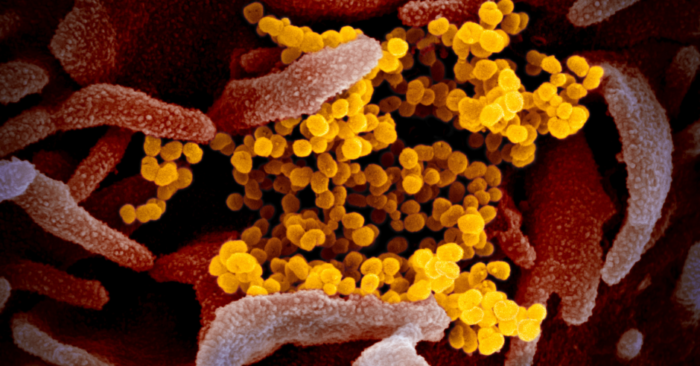Costa Rica Identified Six Genetic Sequences of the SARS-CoV-2
The sequencing of the SARS-CoV-2 genome in the country was carried out by the National Reference Center for Microbiological Food Safety (CNRIMA), in collaboration with the National Reference Center for Virology (CNRV) of Inciensa.

Costa Rica sequenced the coronavirus genes: What does this mean?
Mutations in viruses are normal. In fact, for this coronavirus – officially called SARS-CoV-2 – a preliminary Chinese study found at least 30 different strains.
“We are going to be able to use that information to relate viruses, to learn if they are similar to each other, where they come from, if the cases are related. It is useful for the control, prevention and diagnosis of diseases” said Francisco Duarte, coordinator of the Inciensa Genomics Laboratory in Costa Rica.
Duarte added that, “Knowing that genetic sequence helps us to learn if the virus has mutations or changes in its genetic sequence over time,” which is extremely important, since if the virus changes, it may also need a change in the future vaccine and treatment.
These mutations, even though they are not large enough to make it a totally different virus, they do change certain things, even more aggressive strains than others have been identified.
There are two different types of SARS-CoV-2 strains
A person can even become infected with two different strains, explained Duke University organic chemist Derek Lowe. “There has been a report of a person who was simultaneously infected by two strains with different geographical origins, which is bad luck,” says the scientist.
The genetic material is made up of letters, which are like “the instruction manual,” Orozco explained. In the case of the coronavirus, its genes are made up of 30,000 letters of RNA — a simpler genetic code than DNA.
“It is a first step that leads us to obtain more information. Even later we can sequence the Costa Rican genome and associate the variabilities in the immune system with the aggressiveness of the different strains,” Orozco said.
Costa Rica was able to sequence the complete genome
This process, known as “complete genome sequencing“, consists of analyzing the samples of Covid-19 taken in the country to identify the genetic code of the virus and to be able to compare it with the other sequences that have been discovered in the world.
When there is a vaccine, this allows the government to be able to choose the one that can best react against the coronavirus that circulates in the country.
Benefits of having the complete genome sequencing of a virus
- Identify transmission routes in the country
- Strengthen analysis capabilities for the national network of laboratories
- Provide relevant information for the Ministry of Health and the World Health Organization
- Confirm the quality of laboratory diagnoses carried out
- Contributes to carrying out genomic surveillance in Costa Rica without depending on the sending of samples to other countries
- Establishes a platform for future collaborations with other national scientific centers and other countries in the world
The results have already been sent to the Global Initiative on Sharing All Influenza Data (GISAD) platform, which is used to share globally this type of information, thereby making data from Costa Rica available to the world scientific community.
The genome obtained are close to those of other countries
Two of the genomes obtained by Inciensa are close to those obtained from samples analyzed in the United States, while the other four are located within clusters made up of variations of the virus found in different parts of the world such as Argentina, United Kingdom, Germany, Italy and other countries in Europe.
In total, according to the information sent by Costa Rica to GISAD, 14 mutations were identified in the coronavirus genetic code.
Costa Rica has been praised internationally for how the country is managing the pandemic. Besides from having the technology and professionals to sequence the virus, the country has also:
- Developed curative treatment against Covid-19
- Developed their own Covid-19 screening tests
- Manufactured their own artificial respirators for Covid-19 patients
